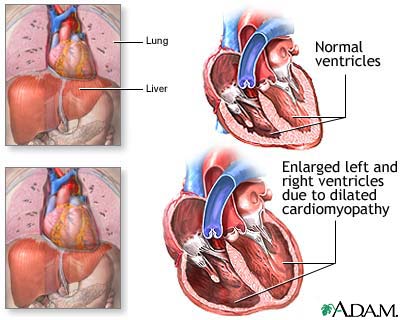 |
| Endocarditis |
The flow of blood is normal through the valves inside the heart. Bacteria enter the heart when one has ailments like rheumatic fever and other such bacterial diseases. Infective endocarditis is divided into two forms known as acute and subacute. In the subacute version of endocarditis, patients tend to live longer than the acute ones. The classification of the disease can show the progression rate and intensity of endocarditis. Subacute bacterial endocarditis (SBE) is caused by streptococci of low virulence and illness. The illness can be mild and moderate along with slow progress over weeks or months. Acute bacterial endocarditis (ABE) is a fulminant illness that can be caused by the staphylococcus aureus that is of more intense disease causing factor. In infective endocarditis, there are two types known as culture positive and culture negative.
Culture-negative endocarditis is caused due to micro-organisms requiring longer time to be identified in the laboratory. Organisms of these kinds are termed as'fastidious' because they have certain requirements. Pathogens causing culture-negative endocarditis are Aspergillus species, Brucella species, Coxiella burnetii, Chlamydia species, and HACEK bacteria. There is marked difference between native-valve endocarditis and prosthetic-valve endocarditis. The identification of the two types is very important. Endocaditis can happen when an individual is injecting narcotics intravenously that enters the staphylococcus aureus in the heart. Those without intravenous experience, have endocarditis on the left side of the heart.
In endocarditis, the valves are damaged severely. The damage can be caused by congenital defects, auto-immune mechanisms, surgeries or by mere old age. The damaged valve has clots formed on it that in clinical term is known as non-bacterial thrombotic endocarditis (NBTE). When there is clot inside the valve of the heart, the bacteria present attaches itself with the clot thereby giving rise to infections inside it. Bacteremia that is the flowing of the bacteria with the blood stream from cut; can be caused by dental process like extraction of teeth or other procedures. Those suffering from heart diseases are first administered with medications in order to prevent any kind of bacterial infections that can lead to endocarditis. The bacteria that cause endocarditis can also enter the body by diseases like colorectal cancer, urinary tract infections and IV drug. Those using the IV drugs have the right side of their heart valves affected.









